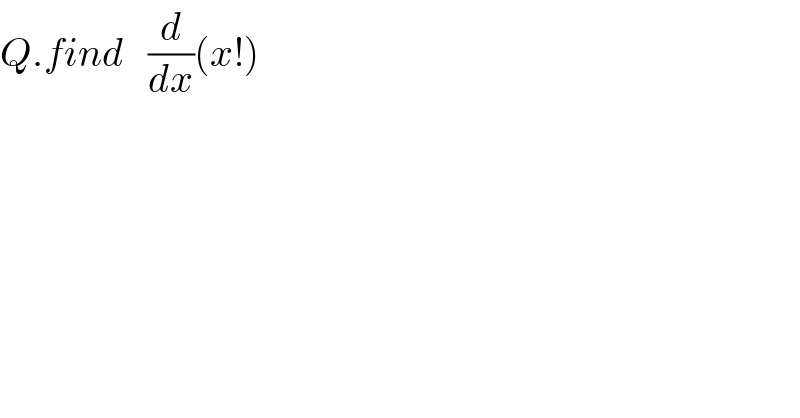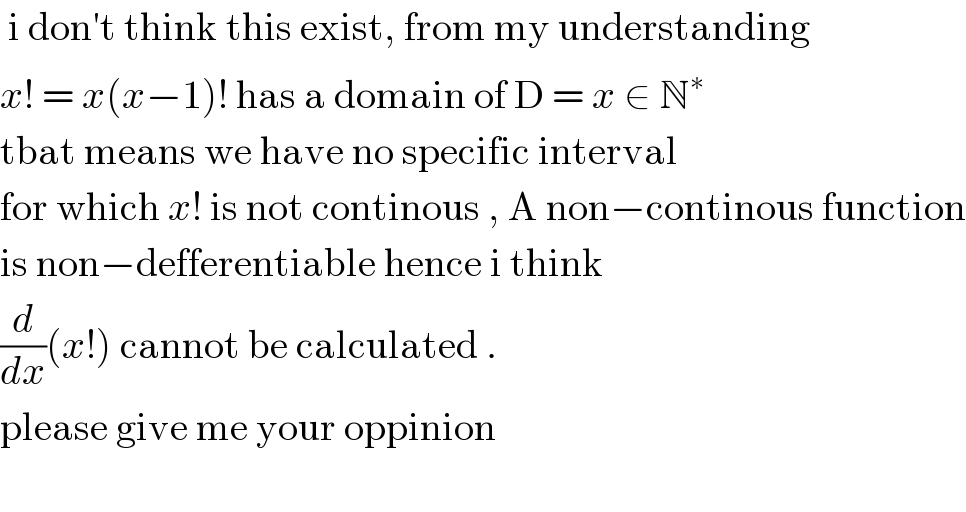
Question and Answers Forum
Question Number 80613 by M±th+et£s last updated on 04/Feb/20

Commented by Rio Michael last updated on 04/Feb/20

Commented by MJS last updated on 04/Feb/20
![(d/dx)[x!] does not exist because x! is only defined on N ⇒ it′s not continuous Γ(x) is the extension of x! but both are not the same so if you ask for (d/dx)[x!] the correct answer is “does not exist” mathematical language is precise language x!=Γ(x+1) is true ∀x∈N but Γ(x)≠(x−1)! ∀x∈R\N](Q80637.png)
Answered by M±th+et£s last updated on 04/Feb/20
![Γ(x)=(x−1)!=∫_0 ^∞ t^(x−1) e^(−t) dt ⇒(1/(Γ(x)))=xe^(γx) Π_(k=1) ^∞ (1+(x/k))e^(((−x)/k) ) ln((1/(Γ(x))))=−ln(Γ(x))=lnx+γx+Σ_(k=1) ^∞ [ln(1+(x/k))−(x/k)] (d/dx)(−ln(Γ(x)))=((Γ′(x))/(Γ(x)))=(1/x)+γ+Σ_(k=1) ^∞ [(1/(1+(x/k))).(1/k)−(1/k)] ⇒((Γ′(x))/(Γ(x)))= −(1/x)−γ+Σ_(k=1) ^∞ [(1/k)−(1/(k+x))]=Ψ(x) Ψ(x)=−γ+Σ_(k=1) ^∞ ((1/k)−(1/(k−1+x))) Ψ(x+1)=−γ+Σ_(k=1) ^∞ [(1/k)−(1/(k+x))]=((Γ′(x+1))/(Γ(x+1))) Γ′(x+1)=Ψ(x+1)Γ(x+1) (d/dx)=Γ(x+1)Ψ(x+1)](Q80625.png)
Commented by M±th+et£s last updated on 04/Feb/20

Commented by mathmax by abdo last updated on 04/Feb/20

